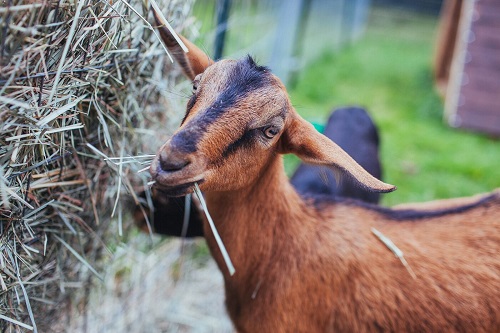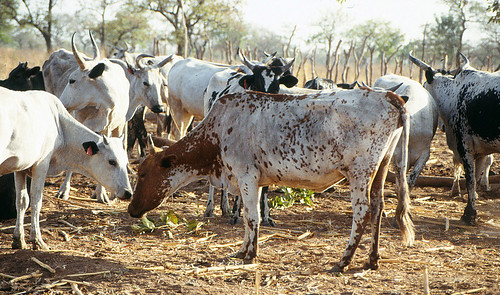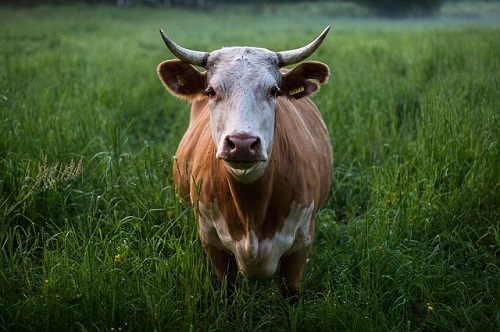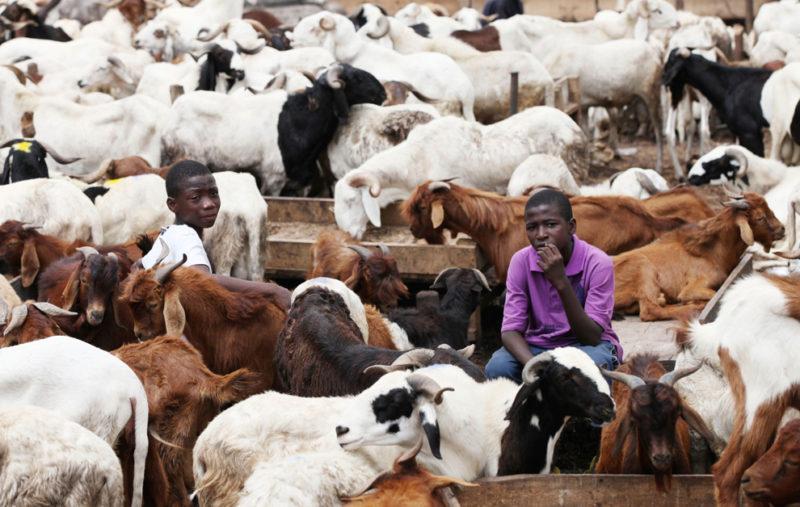What you feed your animals is very important in order to maintain healthy and productive animals. It will also have an effect on the quantities of feed that you have to buy.
Raising goats has many benefits. They are easy to take care of and they produce milk, meat and fiber. If you are new to goats or if you are thinking about getting some goats, then you will want to learn about the food that does best for them, what they should be fed, and how much they should be fed.
How Do Goats Eat?
Goats have complex feeding behaviors, which means they have a very specific way of searching for food. Goats are browsers which means they eat leaves, twigs and buds of trees and shrubs. However, when they can graze on find high-fiber grasses and weeds when there are no alternatives.
Goats are ruminants and they regurgitate the food they have eaten, chew the cud and then swallow it again. This is known as rumination or chewing the cud. This is a process when the goat regurgitates the food, chews it and then swallows it again to eat it for the last time.
Also Read: A Beginner’s Guide to Goat Farming
Ruminants, like goats, have four-part stomachs: the rumen, reticulum, omasum and abomasum. Not only does the rumen break down fibrous plants to make nutrition easily digestible for the goat, but it is also home to over 800 different species of bacteria that actually help digest the goat’s food. Goats pull energy from the interactions between the microbes in their rumen.
These microbes digest plant fiber in the rumen enabling the goat to extract the nutrition it needs. The goat’s rumen is designed to digest plant fiber or cellulose, which cannot be digested in the goat’s small intestine.
Goats also eat some of the plants that other animals do not eat. Their hardy nature and ability to find food in harsh conditions means that goats can survive in arid environments where other animals cannot. Some of their favorite plants include shrubs, forbs, herbs and grasses.
What Do Goats Eat?
Raising goats may be hard because you need to feed them with foods that are only meant for them. Feeding may be very expensive but you need to feed the goat to get better milk production and for the goat to grow well.
Gestation and lactation are both critical periods for the nutrition of a goat. If they won’t get adequate nutrients they will be more prone to ailments and they will not get their full potential as well.
Goats need proteins, fiber, water and energy-rich food to be able to grow. Energy is one of the limiting nutrients and protein is one of the most costly. If there may be imbalances in vitamins and minerals, the performance of the goat may be limited and it can lead to different types of health problems.
Fibers are very important to keep goats healthy and to also prevent digestive problems. There should also be enough water intake to prevent different health risks to come their way. What do goats eat is a big problem for most goat raisers especially now that the cost of the feed is so high.
Also Read: Sample Feed Formulae for Goats and Sheep
Water is one of the inexpensive feed ingredients that are always neglected. Water should be a part of their feed at all times, especially during wintertime. A mature goat needs to consume around 7 liters of water a day.
Pasture and browse plants can be an inexpensive source of nutrients for goats. Pasture is high in energy and protein too since it’s also in a vegetable form. When the pasture plant gets older the palatability and digestibility also get lower so the plant needs to be young to be able to keep the vegetative state that it has.
Some of the right pastures for goats are guinea grass, elephant grass, millet, sorghum, maize, sudan grass and other mixtures of grains. The early part of the grazing season makes pasture rich in protein and goats have the ability to choose the most nutritious state of the pasture during those times so they will not have a problem with parasites too.
There is no need to worry about what goats eat because hay can be the primary source of nutrients for goats, especially during the winter season. Hay comes in different varieties and qualities and one way to know if the hay is of the best quality for the goat is to bring it to a laboratory for testing.
There are legume hays that are also high in protein but sometimes the goat cannot find such type of hay to eat. Vitamins and minerals are needed by goats. They should be given to them because they are very essential. They provide salt, calcium and others that goats really need.
Though vitamins may be given in small amounts, goats need more vitamins A, D and E, and you can provide goats with these vitamins through mixtures. Grain is also essential and it can be found on feeds.



